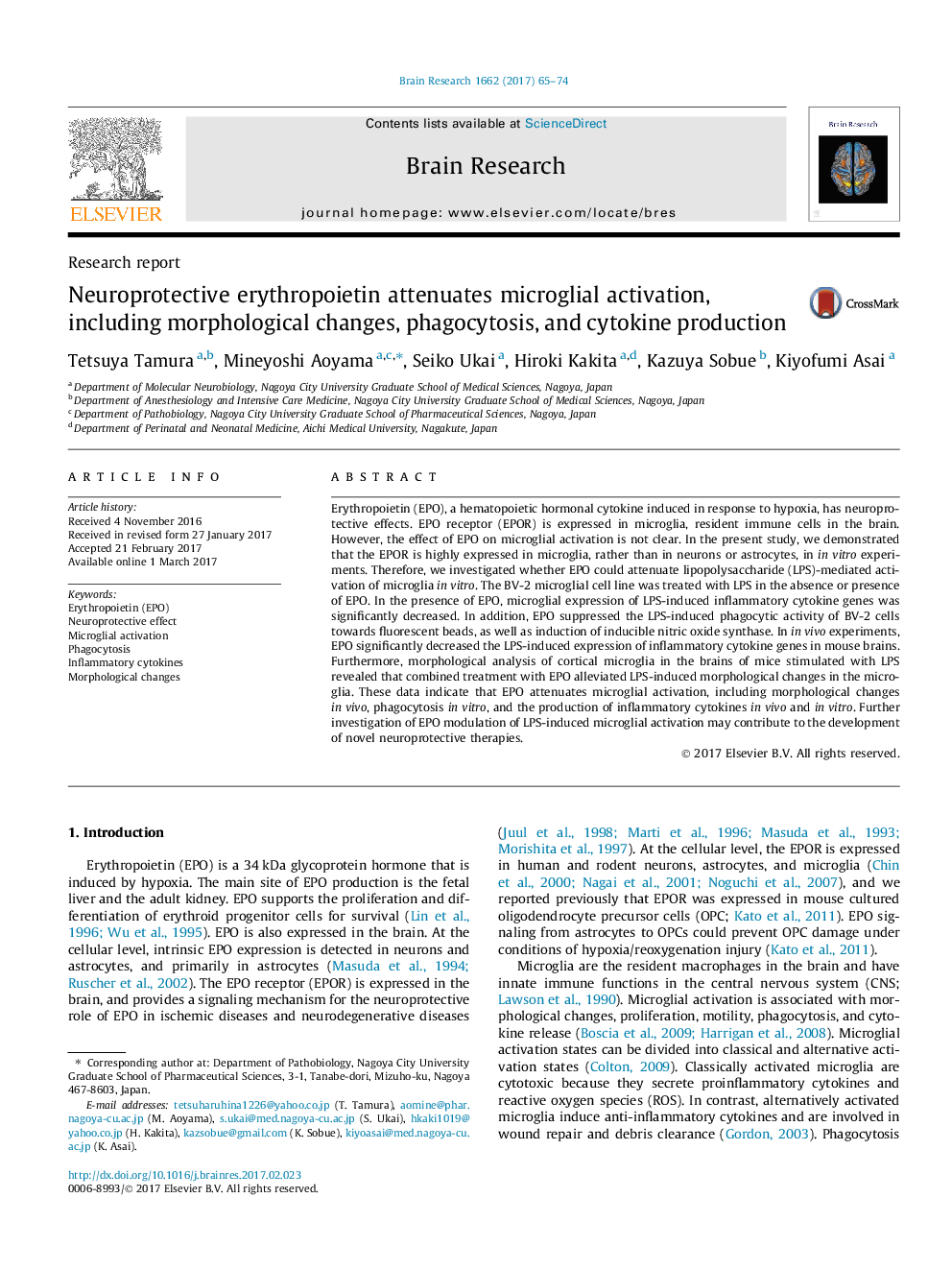| کد مقاله | کد نشریه | سال انتشار | مقاله انگلیسی | نسخه تمام متن |
|---|---|---|---|---|
| 5736758 | 1613783 | 2017 | 10 صفحه PDF | دانلود رایگان |
- Erythropoietin (EPO) has a neuroprotective effect.
- EPO receptor (EPOR) expression is higher in microglia than in neurons.
- EPO treatment attenuates microglial activation.
- The neuroprotection of EPO may be mediated by regulation of microglial activation.
Erythropoietin (EPO), a hematopoietic hormonal cytokine induced in response to hypoxia, has neuroprotective effects. EPO receptor (EPOR) is expressed in microglia, resident immune cells in the brain. However, the effect of EPO on microglial activation is not clear. In the present study, we demonstrated that the EPOR is highly expressed in microglia, rather than in neurons or astrocytes, in in vitro experiments. Therefore, we investigated whether EPO could attenuate lipopolysaccharide (LPS)-mediated activation of microglia in vitro. The BV-2 microglial cell line was treated with LPS in the absence or presence of EPO. In the presence of EPO, microglial expression of LPS-induced inflammatory cytokine genes was significantly decreased. In addition, EPO suppressed the LPS-induced phagocytic activity of BV-2 cells towards fluorescent beads, as well as induction of inducible nitric oxide synthase. In in vivo experiments, EPO significantly decreased the LPS-induced expression of inflammatory cytokine genes in mouse brains. Furthermore, morphological analysis of cortical microglia in the brains of mice stimulated with LPS revealed that combined treatment with EPO alleviated LPS-induced morphological changes in the microglia. These data indicate that EPO attenuates microglial activation, including morphological changes in vivo, phagocytosis in vitro, and the production of inflammatory cytokines in vivo and in vitro. Further investigation of EPO modulation of LPS-induced microglial activation may contribute to the development of novel neuroprotective therapies.
Journal: Brain Research - Volume 1662, 1 May 2017, Pages 65-74
